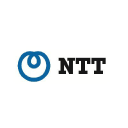TU

TELUS Corporation
TU
(2.8)13,84 USD
2.95% ROA
5.8% ROE
41.96x PER
32.908.962.835,20 USD
169.4% DER
5.1% Yield
4.62% NPM
TELUS Corporation Stock Analysis
TELUS Corporation Fundamental Analysis
Fundamental analysis in stock investing is like studying the foundation of a house before buying it. It involves looking at a company's financial health, like its earnings, assets, and debts, to determine if it's a good investment based on its fundamental strength and potential for growth.
| # | Analysis | Rating |
|---|---|---|
| 1 |
Revenue Growth
This company's revenue has experienced steady growth over the last five years, indicating a reliable and prosperous financial trajectory. |
|
| 2 |
Assets Growth
This company's revenue has experienced steady growth over the last five years, indicating a reliable and prosperous financial trajectory. |
|
| 3 |
Dividend
The company's consistent dividend distribution over the past five years reflects its dedication to providing shareholders with steady returns, making it an appealing choice for investors seeking income stability. |
|
| 4 |
ROE
The stock's ROE falls within an average range (7.11%), demonstrating satisfactory profitability and efficiency in utilizing shareholders' equity. |
|
| 5 |
ROA
The stock's ROA (4.57%) shows that it's doing a pretty good job at making money from its assets, making it a solid choice to invest and earn steady profits. |
|
| 6 |
PBV
The stock's PBV ratio (2.14x) indicates a justifiable valuation, presenting a compelling choice for investors seeking reasonable returns. |
|
| 7 |
Dividend Growth
With a history of consistent dividend increases over the last three years, the company has proven to be a reliable choice for investors seeking reliable income. |
|
| 8 |
Buffet Intrinsic Value
Warren Buffett's formula suggests that the company's stock is undervalued (343), making it an appealing investment prospect with its intrinsic value surpassing the current market price. |
|
| 9 |
DER
The company has a high debt to equity ratio (166%), which means it owes a lot of money compared to what it actually owns, making it financially risky. |
|
| 10 |
Net Profit Growth
This company's net profit has remained stagnant over the past five years, indicating a lack of growth and making it a less favorable investment option. |
|
| 11 |
Graham Number
The Graham number analysis indicates that this company's stock price is likely overpriced, raising concerns about its investment potential. |
TELUS Corporation Technical Analysis
Technical analysis in stock investing is like reading the patterns on a weather map to predict future weather conditions. It involves studying past stock price movements and trading volumes to make predictions about where a stock's price might go next, without necessarily looking at the company's financial health.
| # | Analysis | Recommendation |
|---|---|---|
| 1 | Awesome Oscillator | Buy |
| 2 | MACD | Buy |
| 3 | RSI | Hold |
| 4 | Stoch RSI | Sell |
TELUS Corporation Price Chart
Financial Statements
Financial statements are like report cards for companies. They show how much money a company makes (income statement), what it owns and owes (balance sheet), and where it spends its money (cash flow statement), helping stock investors understand if a company is healthy and worth investing in.
Income Statements
An income statement for a company is like a scoreboard for its profits and losses. It shows how much money the company made (revenue) and how much it spent to make that money (expenses), helping stock investors see if a company is making a profit or not.
Revenue in stock investing is the total amount of money a company earns from its sales, and it's a key factor that investors consider to assess a company's financial performance and growth potential.
| Year | Revenue | Growth |
|---|---|---|
| 1998 | 4.842.700.000 | |
| 1999 | 5.761.800.000 | 15.95% |
| 2000 | 6.433.200.360 | 10.44% |
| 2001 | 7.202.599.491 | 10.68% |
| 2002 | 7.006.700.000 | -2.8% |
| 2003 | 7.146.000.000 | 1.95% |
| 2004 | 7.581.200.000 | 5.74% |
| 2005 | 8.142.700.000 | 6.9% |
| 2006 | 8.681.000.000 | 6.2% |
| 2007 | 9.074.400.000 | 4.34% |
| 2008 | 11.747.701.000 | 22.76% |
| 2009 | 10.058.442.600 | -16.79% |
| 2010 | 9.779.000.000 | -2.86% |
| 2011 | 10.397.000.000 | 5.94% |
| 2012 | 10.852.000.000 | 4.19% |
| 2013 | 11.336.000.000 | 4.27% |
| 2014 | 11.927.000.000 | 4.96% |
| 2015 | 12.430.000.000 | 4.05% |
| 2016 | 12.725.000.000 | 2.32% |
| 2017 | 13.202.000.000 | 3.61% |
| 2018 | 14.095.000.000 | 6.34% |
| 2019 | 14.589.000.000 | 3.39% |
| 2020 | 15.341.000.000 | 4.9% |
| 2021 | 16.838.000.000 | 8.89% |
| 2022 | 18.292.000.000 | 7.95% |
| 2023 | 19.960.000.000 | 8.36% |
| 2023 | 20.005.000.000 | 0.22% |
| 2024 | 19.600.000.000 | -2.07% |
Research and Development Expenses are the costs a company incurs to create and improve its products or services, which can be important for investors to evaluate a company's innovation and potential for future growth.
| Year | Research and Development Expenses | Growth |
|---|---|---|
| 1998 | 0 | |
| 1999 | 0 | 0% |
| 2000 | 0 | 0% |
| 2001 | 0 | 0% |
| 2002 | 0 | 0% |
| 2003 | 0 | 0% |
| 2004 | 0 | 0% |
| 2005 | 0 | 0% |
| 2006 | 0 | 0% |
| 2007 | 0 | 0% |
| 2008 | 0 | 0% |
| 2009 | 0 | 0% |
| 2010 | 0 | 0% |
| 2011 | 0 | 0% |
| 2012 | 0 | 0% |
| 2013 | 0 | 0% |
| 2014 | 0 | 0% |
| 2015 | 0 | 0% |
| 2016 | 0 | 0% |
| 2017 | 0 | 0% |
| 2018 | 0 | 0% |
| 2019 | 0 | 0% |
| 2020 | 0 | 0% |
| 2021 | 0 | 0% |
| 2022 | 0 | 0% |
| 2023 | 0 | 0% |
| 2023 | 0 | 0% |
| 2024 | 0 | 0% |
General and Administrative Expenses are the costs a company incurs to run its day-to-day operations, such as office rent, salaries, and utilities, which investors consider to understand a company's overall efficiency and management effectiveness.
| Year | General and Administrative Expenses | Growth |
|---|---|---|
| 1998 | 0 | |
| 1999 | 0 | 0% |
| 2000 | 0 | 0% |
| 2001 | 0 | 0% |
| 2002 | 0 | 0% |
| 2003 | 0 | 0% |
| 2004 | 0 | 0% |
| 2005 | 0 | 0% |
| 2006 | 0 | 0% |
| 2007 | 0 | 0% |
| 2008 | 0 | 0% |
| 2009 | 0 | 0% |
| 2010 | 0 | 0% |
| 2011 | 1.893.000.000 | 100% |
| 2012 | 2.129.000.000 | 11.09% |
| 2013 | 2.424.000.000 | 12.17% |
| 2014 | 2.487.000.000 | 2.53% |
| 2015 | 2.708.000.000 | 8.16% |
| 2016 | 2.939.000.000 | 7.86% |
| 2017 | 2.595.000.000 | -13.26% |
| 2018 | 2.896.000.000 | 10.39% |
| 2019 | 3.034.000.000 | 4.55% |
| 2020 | 3.701.000.000 | 18.02% |
| 2021 | 4.269.000.000 | 13.31% |
| 2022 | 4.899.000.000 | 12.86% |
| 2023 | 6.532.000.000 | 25% |
| 2023 | 6.148.000.000 | -6.25% |
| 2024 | 5.892.000.000 | -4.34% |
EBITDA stands for Earnings Before Interest, Taxes, Depreciation, and Amortization. It is a measure that helps stock investors analyze a company's profitability by looking at its earnings without considering certain expenses. This helps to get a clearer picture of the company's financial performance and its ability to generate cash flow.
| Year | EBITDA | Growth |
|---|---|---|
| 1998 | 2.231.000.000 | |
| 1999 | 2.327.400.000 | 4.14% |
| 2000 | 2.337.700.960 | 0.44% |
| 2001 | 2.336.100.000 | -0.07% |
| 2002 | 2.017.500.000 | -15.79% |
| 2003 | 2.836.200.000 | 28.87% |
| 2004 | 3.124.100.000 | 9.22% |
| 2005 | 3.297.500.000 | 5.26% |
| 2006 | 3.592.900.000 | 8.22% |
| 2007 | 3.594.000.000 | 0.03% |
| 2008 | 3.757.000.000 | 4.34% |
| 2009 | 3.509.000.000 | -7.07% |
| 2010 | 3.655.000.000 | 3.99% |
| 2011 | 3.778.000.000 | 3.26% |
| 2012 | 3.882.000.000 | 2.68% |
| 2013 | 4.005.000.000 | 3.07% |
| 2014 | 4.222.000.000 | 5.14% |
| 2015 | 4.312.000.000 | 2.09% |
| 2016 | 4.228.000.000 | -1.99% |
| 2017 | 4.781.000.000 | 11.57% |
| 2018 | 5.085.000.000 | 5.98% |
| 2019 | 5.530.000.000 | 8.05% |
| 2020 | 5.469.000.000 | -1.12% |
| 2021 | 5.902.000.000 | 7.34% |
| 2022 | 6.318.000.000 | 6.58% |
| 2023 | 6.028.000.000 | -4.81% |
| 2023 | 6.451.000.000 | 6.56% |
| 2024 | 6.876.000.000 | 6.18% |
Gross profit is the money a company makes from selling its products or services after subtracting the cost of producing or providing them, and it is an important measure for investors to understand a company's profitability.
| Year | Gross Profit | Growth |
|---|---|---|
| 1998 | 1.391.100.000 | |
| 1999 | 2.216.900.000 | 37.25% |
| 2000 | 2.464.800.540 | 10.06% |
| 2001 | 2.529.598.854 | 2.56% |
| 2002 | 2.518.600.000 | -0.44% |
| 2003 | 2.844.100.000 | 11.44% |
| 2004 | 5.174.000.000 | 45.03% |
| 2005 | 5.489.800.000 | 5.75% |
| 2006 | 5.939.000.000 | 7.56% |
| 2007 | 6.025.900.000 | 1.44% |
| 2008 | 4.670.846.000 | -29.01% |
| 2009 | 3.854.375.100 | -21.18% |
| 2010 | 3.717.000.000 | -3.7% |
| 2011 | 5.671.000.000 | 34.46% |
| 2012 | 6.032.000.000 | 5.98% |
| 2013 | 6.374.000.000 | 5.37% |
| 2014 | 6.628.000.000 | 3.83% |
| 2015 | 6.898.000.000 | 3.91% |
| 2016 | 7.094.000.000 | 2.76% |
| 2017 | 7.267.000.000 | 2.38% |
| 2018 | 7.727.000.000 | 5.95% |
| 2019 | 8.519.000.000 | 9.3% |
| 2020 | 9.073.000.000 | 6.11% |
| 2021 | 10.139.000.000 | 10.51% |
| 2022 | 11.185.000.000 | 9.35% |
| 2023 | 12.528.000.000 | 10.72% |
| 2023 | 12.468.000.000 | -0.48% |
| 2024 | 2.992.000.000 | -316.71% |
Net income in stock investing is like the money a company actually gets to keep as profit after paying all its bills, and it's an important measure to understand how well a company is doing financially.
| Year | Net Profit | Growth |
|---|---|---|
| 1998 | 72.400.000 | |
| 1999 | 349.700.000 | 79.3% |
| 2000 | 461.000.300 | 24.14% |
| 2001 | 453.500.478 | -1.65% |
| 2002 | -229.000.000 | 298.04% |
| 2003 | 331.500.000 | 169.08% |
| 2004 | 565.800.000 | 41.41% |
| 2005 | 700.300.000 | 19.21% |
| 2006 | 1.122.500.000 | 37.61% |
| 2007 | 1.257.900.000 | 10.76% |
| 2008 | 1.372.776.000 | 8.37% |
| 2009 | 1.045.005.800 | -31.37% |
| 2010 | 1.034.000.000 | -1.06% |
| 2011 | 1.219.000.000 | 15.18% |
| 2012 | 1.318.000.000 | 7.51% |
| 2013 | 1.294.000.000 | -1.85% |
| 2014 | 1.425.000.000 | 9.19% |
| 2015 | 1.382.000.000 | -3.11% |
| 2016 | 1.223.000.000 | -13% |
| 2017 | 1.460.000.000 | 16.23% |
| 2018 | 1.600.000.000 | 8.75% |
| 2019 | 1.746.000.000 | 8.36% |
| 2020 | 1.207.000.000 | -44.66% |
| 2021 | 1.655.000.000 | 27.07% |
| 2022 | 1.615.000.000 | -2.48% |
| 2023 | 544.000.000 | -196.88% |
| 2023 | 841.000.000 | 35.32% |
| 2024 | 912.000.000 | 7.79% |
EPS, or earnings per share, is a measure that shows how much profit a company has earned for each outstanding share of its stock, and it is important for stock investors as it helps understand the profitability of a company and compare it with other companies in the market.
| Year | Earning per Share (EPS) | Growth |
|---|---|---|
| 1998 | 0 | |
| 1999 | 0 | 0% |
| 2000 | 0 | 0% |
| 2001 | 0 | 0% |
| 2002 | 0 | 0% |
| 2003 | 0 | 0% |
| 2004 | 0 | 0% |
| 2005 | 0 | 0% |
| 2006 | 1 | 0% |
| 2007 | 1 | 0% |
| 2008 | 1 | 0% |
| 2009 | 1 | 0% |
| 2010 | 1 | 0% |
| 2011 | 1 | 0% |
| 2012 | 1 | 0% |
| 2013 | 1 | 100% |
| 2014 | 1 | 0% |
| 2015 | 1 | 0% |
| 2016 | 1 | 0% |
| 2017 | 1 | 0% |
| 2018 | 1 | 0% |
| 2019 | 1 | 0% |
| 2020 | 1 | 0% |
| 2021 | 1 | 100% |
| 2022 | 1 | 0% |
| 2023 | 0 | 0% |
| 2023 | 1 | 0% |
| 2024 | 1 | 0% |
Cashflow Statements
Cashflow statements show the movement of money in and out of a company, helping stock investors understand how much money a company makes and spends. By examining cashflow statements, investors can assess if a company is generating enough cash to pay its bills, invest in growth, and provide returns to stockholders.
Free cash flow is the leftover cash that a company generates after covering its operating expenses and capital expenditures, which is important for stock investors as it shows how much money a company has available to invest in growth, pay dividends, or reduce debt.
| Year | Free Cashflow | Growth |
|---|---|---|
| 1998 | 398.700.000 | |
| 1999 | 445.900.000 | 10.59% |
| 2000 | 193.800.240 | -130.08% |
| 2001 | -850.799.109 | 122.78% |
| 2002 | 48.700.000 | 1847.02% |
| 2003 | 891.300.000 | 94.54% |
| 2004 | 1.219.100.000 | 26.89% |
| 2005 | 1.595.600.000 | 23.6% |
| 2006 | 1.185.300.000 | -34.62% |
| 2007 | 1.401.400.000 | 15.42% |
| 2008 | 94.926.000 | -1376.31% |
| 2009 | 838.727.100 | 88.68% |
| 2010 | 825.000.000 | -1.66% |
| 2011 | 703.000.000 | -17.35% |
| 2012 | 1.269.000.000 | 44.6% |
| 2013 | 1.144.000.000 | -10.93% |
| 2014 | -137.000.000 | 935.04% |
| 2015 | -1.028.000.000 | 86.67% |
| 2016 | 322.000.000 | 419.25% |
| 2017 | 866.000.000 | 62.82% |
| 2018 | 1.183.000.000 | 26.8% |
| 2019 | 33.000.000 | -3484.85% |
| 2020 | 1.752.000.000 | 98.12% |
| 2021 | -928.000.000 | 288.79% |
| 2022 | 1.164.000.000 | 179.73% |
| 2023 | 538.000.000 | -116.36% |
| 2023 | 1.288.000.000 | 58.23% |
| 2024 | -156.000.000 | 925.64% |
Operating cash flow represents the cash generated or consumed by a company's day-to-day operations, excluding external investing or financing activities, and is crucial for stock investors as it shows how much cash a company is generating from its core business operations.
| Year | Operating Cashflow | Growth |
|---|---|---|
| 1998 | 1.496.300.000 | |
| 1999 | 1.645.100.000 | 9.05% |
| 2000 | 1.635.100.480 | -0.61% |
| 2001 | 1.398.600.764 | -16.91% |
| 2002 | 1.742.000.000 | 19.71% |
| 2003 | 2.144.000.000 | 18.75% |
| 2004 | 2.538.100.000 | 15.53% |
| 2005 | 2.914.600.000 | 12.92% |
| 2006 | 2.803.700.000 | -3.96% |
| 2007 | 3.171.700.000 | 11.6% |
| 2008 | 3.430.723.000 | 7.55% |
| 2009 | 3.040.778.400 | -12.82% |
| 2010 | 2.546.000.000 | -19.43% |
| 2011 | 2.550.000.000 | 0.16% |
| 2012 | 3.219.000.000 | 20.78% |
| 2013 | 3.246.000.000 | 0.83% |
| 2014 | 3.407.000.000 | 4.73% |
| 2015 | 3.542.000.000 | 3.81% |
| 2016 | 3.219.000.000 | -10.03% |
| 2017 | 3.947.000.000 | 18.44% |
| 2018 | 4.058.000.000 | 2.74% |
| 2019 | 3.927.000.000 | -3.34% |
| 2020 | 4.574.000.000 | 14.15% |
| 2021 | 4.388.000.000 | -4.24% |
| 2022 | 4.811.000.000 | 8.79% |
| 2023 | 1.307.000.000 | -268.09% |
| 2023 | 4.499.000.000 | 70.95% |
| 2024 | 1.388.000.000 | -224.14% |
Capex, short for capital expenditures, refers to the money a company spends on acquiring or upgrading tangible assets like buildings, equipment, or technology, which is important for stock investors as it indicates how much a company is investing in its infrastructure to support future growth and profitability.
| Year | Capital Expenditure | Growth |
|---|---|---|
| 1998 | 1.097.600.000 | |
| 1999 | 1.199.200.000 | 8.47% |
| 2000 | 1.441.300.240 | 16.8% |
| 2001 | 2.249.399.873 | 35.93% |
| 2002 | 1.693.300.000 | -32.84% |
| 2003 | 1.252.700.000 | -35.17% |
| 2004 | 1.319.000.000 | 5.03% |
| 2005 | 1.319.000.000 | 0% |
| 2006 | 1.618.400.000 | 18.5% |
| 2007 | 1.770.300.000 | 8.58% |
| 2008 | 3.335.797.000 | 46.93% |
| 2009 | 2.202.051.300 | -51.49% |
| 2010 | 1.721.000.000 | -27.95% |
| 2011 | 1.847.000.000 | 6.82% |
| 2012 | 1.950.000.000 | 5.28% |
| 2013 | 2.102.000.000 | 7.23% |
| 2014 | 3.544.000.000 | 40.69% |
| 2015 | 4.570.000.000 | 22.45% |
| 2016 | 2.897.000.000 | -57.75% |
| 2017 | 3.081.000.000 | 5.97% |
| 2018 | 2.875.000.000 | -7.17% |
| 2019 | 3.894.000.000 | 26.17% |
| 2020 | 2.822.000.000 | -37.99% |
| 2021 | 5.316.000.000 | 46.91% |
| 2022 | 3.647.000.000 | -45.76% |
| 2023 | 769.000.000 | -374.25% |
| 2023 | 3.211.000.000 | 76.05% |
| 2024 | 1.544.000.000 | -107.97% |
Balance Sheet
Balance sheets provide a snapshot of a company's financial health and its assets (such as cash, inventory, and property) and liabilities (like debts and obligations) at a specific point in time. For stock investors, balance sheets help assess the company's overall worth and evaluate its ability to meet financial obligations and support future growth.
Equity refers to the ownership interest or stake that shareholders have in a company, representing their claim on its assets and earnings after all debts and liabilities are paid.
| Year | Equity | Growth |
|---|---|---|
| 1998 | 4.383.500.000 | |
| 1999 | 4.320.100.000 | -1.47% |
| 2000 | 6.492.699.460 | 33.46% |
| 2001 | 6.986.900.669 | 7.07% |
| 2002 | 6.443.800.000 | -8.43% |
| 2003 | 6.672.700.000 | 3.43% |
| 2004 | 7.038.700.000 | 5.2% |
| 2005 | 6.895.600.000 | -2.08% |
| 2006 | 6.951.700.000 | 0.81% |
| 2007 | 6.952.100.000 | 0.01% |
| 2008 | 8.768.485.000 | 20.71% |
| 2009 | 7.931.782.500 | -10.55% |
| 2010 | 8.201.000.000 | 3.28% |
| 2011 | 7.513.000.000 | -9.16% |
| 2012 | 7.686.000.000 | 2.25% |
| 2013 | 8.015.000.000 | 4.1% |
| 2014 | 7.454.000.000 | -7.53% |
| 2015 | 7.672.000.000 | 2.84% |
| 2016 | 7.936.000.000 | 3.33% |
| 2017 | 8.263.000.000 | 3.96% |
| 2018 | 10.341.000.000 | 20.09% |
| 2019 | 10.659.000.000 | 2.98% |
| 2020 | 12.602.000.000 | 15.42% |
| 2021 | 16.059.000.000 | 21.53% |
| 2022 | 17.658.000.000 | 9.06% |
| 2023 | 17.302.000.000 | -2.06% |
| 2023 | 17.506.000.000 | 1.17% |
| 2024 | 17.045.000.000 | -2.7% |
Assets represent the valuable resources that a company owns, such as cash, inventory, property, and equipment, and understanding a company's assets helps investors assess its value and potential for generating future profits.
| Year | Assets | Growth |
|---|---|---|
| 1998 | 7.923.200.000 | |
| 1999 | 7.811.100.000 | -1.44% |
| 2000 | 16.415.000.000 | 52.41% |
| 2001 | 19.265.600.128 | 14.8% |
| 2002 | 18.219.800.000 | -5.74% |
| 2003 | 17.477.500.000 | -4.25% |
| 2004 | 17.838.000.000 | 2.02% |
| 2005 | 16.222.300.000 | -9.96% |
| 2006 | 16.508.200.000 | 1.73% |
| 2007 | 16.987.600.000 | 2.82% |
| 2008 | 23.317.720.000 | 27.15% |
| 2009 | 20.124.214.900 | -15.87% |
| 2010 | 19.599.000.000 | -2.68% |
| 2011 | 19.931.000.000 | 1.67% |
| 2012 | 20.445.000.000 | 2.51% |
| 2013 | 21.566.000.000 | 5.2% |
| 2014 | 23.217.000.000 | 7.11% |
| 2015 | 26.406.000.000 | 12.08% |
| 2016 | 27.729.000.000 | 4.77% |
| 2017 | 29.548.000.000 | 6.16% |
| 2018 | 33.065.000.000 | 10.64% |
| 2019 | 37.975.000.000 | 12.93% |
| 2020 | 43.332.000.000 | 12.36% |
| 2021 | 47.994.000.000 | 9.71% |
| 2022 | 54.046.000.000 | 11.2% |
| 2023 | 56.136.000.000 | 3.72% |
| 2023 | 56.460.000.000 | 0.57% |
| 2024 | 57.311.000.000 | 1.48% |
Liabilities refer to the financial obligations or debts that a company owes to creditors or external parties, and understanding a company's liabilities is important for investors as it helps assess the company's financial risk and ability to meet its obligations.
| Year | Liabilities | Growth |
|---|---|---|
| 1998 | 3.539.700.000 | |
| 1999 | 3.491.000.000 | -1.4% |
| 2000 | 9.922.300.540 | 64.82% |
| 2001 | 12.278.699.459 | 19.19% |
| 2002 | 11.776.000.000 | -4.27% |
| 2003 | 10.804.800.000 | -8.99% |
| 2004 | 10.799.300.000 | -0.05% |
| 2005 | 9.326.700.000 | -15.79% |
| 2006 | 9.556.500.000 | 2.4% |
| 2007 | 10.035.500.000 | 4.77% |
| 2008 | 14.549.235.000 | 31.02% |
| 2009 | 12.192.432.400 | -19.33% |
| 2010 | 11.398.000.000 | -6.97% |
| 2011 | 12.418.000.000 | 8.21% |
| 2012 | 12.759.000.000 | 2.67% |
| 2013 | 13.551.000.000 | 5.84% |
| 2014 | 15.763.000.000 | 14.03% |
| 2015 | 18.734.000.000 | 15.86% |
| 2016 | 19.793.000.000 | 5.35% |
| 2017 | 21.285.000.000 | 7.01% |
| 2018 | 22.724.000.000 | 6.33% |
| 2019 | 27.316.000.000 | 16.81% |
| 2020 | 30.730.000.000 | 11.11% |
| 2021 | 31.935.000.000 | 3.77% |
| 2022 | 36.388.000.000 | 12.24% |
| 2023 | 38.834.000.000 | 6.3% |
| 2023 | 38.954.000.000 | 0.31% |
| 2024 | 40.266.000.000 | 3.26% |
TELUS Corporation Financial Ratio (TTM)
Valuation Metrics
- Revenue per Share
- 13.44
- Net Income per Share
- 0.53
- Price to Earning Ratio
- 41.96x
- Price To Sales Ratio
- 1.65x
- POCF Ratio
- 6.59
- PFCF Ratio
- 32.08
- Price to Book Ratio
- 2.07
- EV to Sales
- 3.07
- EV Over EBITDA
- 9.14
- EV to Operating CashFlow
- 12.34
- EV to FreeCashFlow
- 59.63
- Earnings Yield
- 0.02
- FreeCashFlow Yield
- 0.03
- Market Cap
- 32,91 Bil.
- Enterprise Value
- 61,18 Bil.
- Graham Number
- 11.23
- Graham NetNet
- -24.31
Income Statement Metrics
- Net Income per Share
- 0.53
- Income Quality
- 6.18
- ROE
- 0.05
- Return On Assets
- 0.02
- Return On Capital Employed
- 0.06
- Net Income per EBT
- 0.78
- EBT Per Ebit
- 0.4
- Ebit per Revenue
- 0.15
- Effective Tax Rate
- 0.21
Margins
- Sales, General, & Administrative to Revenue
- 0.3
- Research & Developement to Revenue
- 0
- Stock Based Compensation to Revenue
- 0.01
- Gross Profit Margin
- 0.39
- Operating Profit Margin
- 0.15
- Pretax Profit Margin
- 0.06
- Net Profit Margin
- 0.05
Dividends
- Dividend Yield
- 0.05
- Dividend Yield %
- 5.1
- Payout Ratio
- 1.88
- Dividend Per Share
- 1.13
Operating Metrics
- Operating Cashflow per Share
- 3.35
- Free CashFlow per Share
- 0.69
- Capex to Operating CashFlow
- 0.79
- Capex to Revenue
- 0.2
- Capex to Depreciation
- 0.98
- Return on Invested Capital
- 0.05
- Return on Tangible Assets
- 0.03
- Days Sales Outstanding
- 74.24
- Days Payables Outstanding
- 29.92
- Days of Inventory on Hand
- 15.89
- Receivables Turnover
- 4.92
- Payables Turnover
- 12.2
- Inventory Turnover
- 22.97
- Capex per Share
- 2.65
Balance Sheet
- Cash per Share
- 0,63
- Book Value per Share
- 11,50
- Tangible Book Value per Share
- -9.33
- Shareholders Equity per Share
- 10.67
- Interest Debt per Share
- 18.99
- Debt to Equity
- 1.69
- Debt to Assets
- 0.47
- Net Debt to EBITDA
- 4.22
- Current Ratio
- 0.66
- Tangible Asset Value
- -13,83 Bil.
- Net Current Asset Value
- -33,85 Bil.
- Invested Capital
- 44829000000
- Working Capital
- -3,27 Bil.
- Intangibles to Total Assets
- 0.54
- Average Receivables
- 4,05 Bil.
- Average Payables
- 0,98 Bil.
- Average Inventory
- 534500000
- Debt to Market Cap
- 0.81
Dividends
Dividends in stock investing are like rewards that companies give to their shareholders. They are a portion of the company's profits distributed to investors, typically in the form of cash payments, as a way for them to share in the company's success.
| Year | Dividends | Growth |
|---|---|---|
| 2000 | 0 | |
| 2001 | 1 | 100% |
| 2002 | 1 | 0% |
| 2003 | 1 | 0% |
| 2004 | 1 | 0% |
| 2005 | 1 | 0% |
| 2006 | 1 | 100% |
| 2007 | 1 | 0% |
| 2008 | 2 | 0% |
| 2009 | 2 | 0% |
| 2010 | 2 | 0% |
| 2011 | 2 | 50% |
| 2012 | 2 | 0% |
| 2013 | 1 | -100% |
| 2014 | 2 | 0% |
| 2015 | 1 | 0% |
| 2016 | 1 | 0% |
| 2017 | 2 | 0% |
| 2018 | 2 | 0% |
| 2019 | 1 | 0% |
| 2020 | 1 | 0% |
| 2021 | 1 | 0% |
| 2022 | 1 | 0% |
| 2023 | 1 | 0% |
| 2024 | 1 | 0% |
TELUS Corporation Profile
About TELUS Corporation
TELUS Corporation, together with its subsidiaries, provides a range of telecommunications and information technology products and services in Canada. It operates through Technology Solutions and Digitally-Led Customer Experiences segments. The Technology Solutions segment offers a range of telecommunications products and services; network revenue; mobile technologies equipment sale; data revenues, such as internet protocol; television; hosting, managed information technology, and cloud-based services; software, data management, and data analytics-driven smart food-chain technologies; home and business security; healthcare software and technology solutions; and voice and other telecommunications services. The Digitally-Led Customer Experiences segment provides digital customer experience and digital-enablement transformation solutions, including artificial intelligence and content management solutions. It has 16.9 million subscriber connections, which include 9.3 million mobile phone subscribers; 2.1 million connected device subscribers; 2.3 million internet subscribers; 1.1 million residential voice subscribers; 1.3 million TV subscribers; and 804,000 security subscribers. The company was formerly known as TELUS Communications Inc. and changed its name to TELUS Corporation in February 2005. TELUS Corporation was incorporated in 1998 and is headquartered in Vancouver, Canada.
- CEO
- Mr. Darren Entwistle B.A., LL
- Employee
- 106.400
- Address
-
510 West Georgia Street
Vancouver, V6B 0M3
TELUS Corporation Executives & BODs
| # | Name | Age |
|---|---|---|
| 1 |
Ms. Andrea Louise Wood LLB LLM Executive Vice President and Chief Legal & Governance Officer |
70 |
| 2 |
Mr. Tony Geheran Chief Operating Officer & EVice President |
70 |
| 3 |
Ms. Jill Schnarr Chief Communications & Brand Officer |
70 |
| 4 |
Mr. Douglas French Executive Vice President & Chief Financial Officer |
70 |
| 5 |
Mr. Robert Mitchell Head of Investor Relations |
70 |
| 6 |
Ms. Sandy McIntosh Executive Vice President of People & Culture and Chief Human Resources Officer |
70 |
| 7 |
Mr. Francois Cote Executive Vice President |
70 |
| 8 |
Mr. Darren Entwistle B.A., LL.D., M.B.A. President, Chief Executive Officer & Director |
70 |
| 9 |
Ms. Zainul Mawji EVice President & President of Telus Consumer Solutions |
70 |
| 10 |
Mr. Navin Arora Executive Vice President & President of Business Solutions |
70 |











